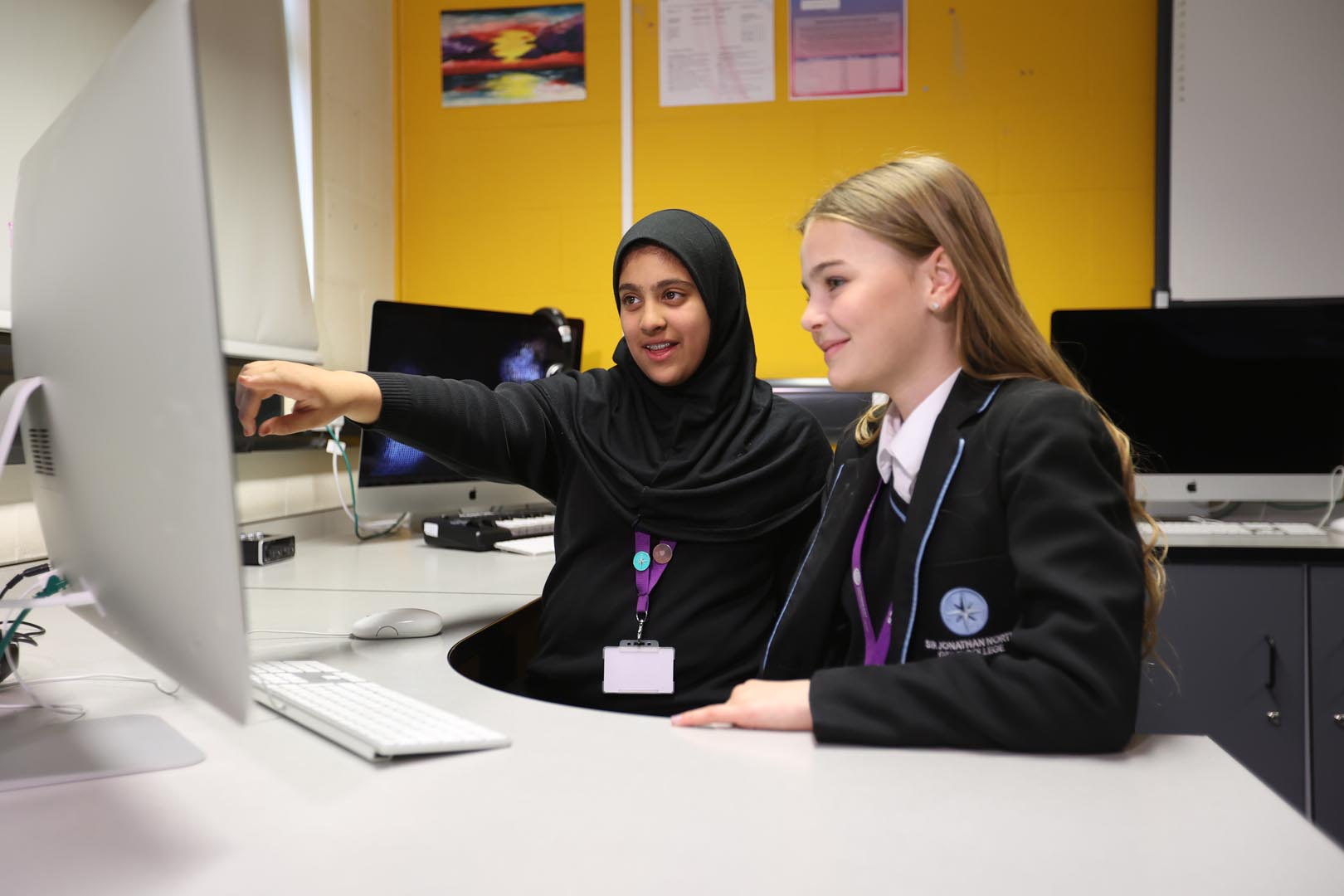
Computing
We want all our students to be good, confident users of technology; equipped with computational thinking skills enabling them to be problem solvers, innovators and creators.Curriculum rationale:
In Computer Science we aim to foster a love of learning and ignite an interest in computer science and digital media. The curriculum is designed to challenge students to become more resourceful and resilient through developing their problem-solving skills using a computational thinking framework.
Curriculum design:
The Computer Science curriculum has been designed and developed around the six strands of the national curriculum: Algorithms, Communication and Networks, Data and Data Representation, Hardware and Processing, Information Technology and Programming and Development. The curriculum content has been adapted to make Computer Science appealing to an audience of girls. The KS3 curriculum is intended to prepare students to take either a computer science or digital media pathway at Key Stage 4.
Curriculum Plan KS3:
|
Topic |
|
|
Year 7 |
Computer Fundamentals/E-Safety |
|
Networks |
|
|
Block-based Programming 1 |
|
|
Representations: From Clay to Silicone |
|
|
Block-based Programming 2 |
|
|
Year 8 |
Introduction to Python Programming |
|
Media: Vector graphics |
|
|
Developing for the web |
|
|
Physical Computing |
|
|
Computing Systems |
|
|
Year 9 |
Python programming with sequences of data |
|
Representations: going audio visual |
|
|
Cyber Security |
|
|
Student programming project |
KS 3 Assessment:
Each half term students learn the theory and practical skills, culminating in a creative project. Each project introduces a new key concept or skill or builds upon prior knowledge and learning, for example, the transition from block-based programming languages to text-based programming languages. The curriculum is designed to ensure that students gain general information technology skills which are necessary for student’s future learning and employability.
Extra-curricular opportunities:
We have several clubs that run after school including a Programming club – This is primarily for learning more about programming languages, often leading to an opportunity to learn about robotics. Code breaking club – where students learn about cryptography and participate in a national competition.

